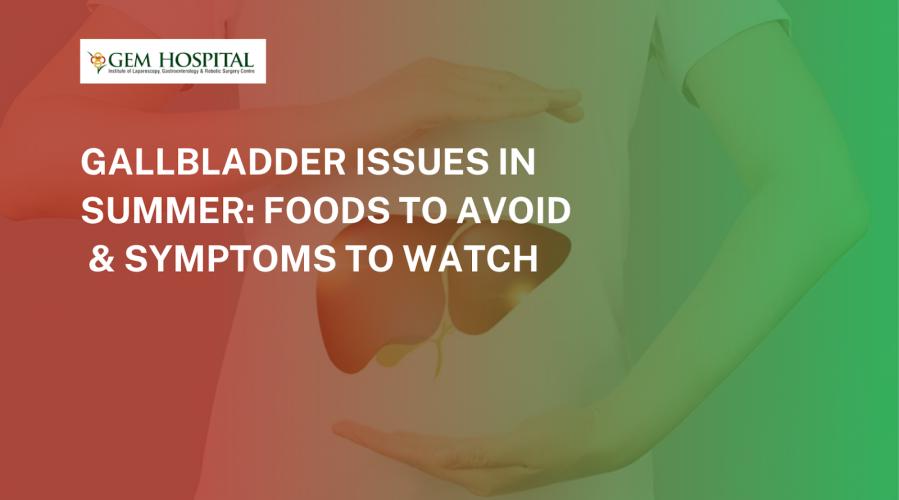Discover why your digestion may worsen during the summer months and learn simple, effective tips to keep your gut healthy and balanced in the heat.
Why Your Digestion Gets Worse During Summer -And What to Do

It’s not just your skin or energy levels that take a hit on hot days your digestive system does too. Although summer is synonymous with holidays and fresh fruits, it’s also a time when many people experience a marked decline in digestive comfort. One of a number of different contributors may be increased dehydration, changes in eating patterns, or simply the body's natural response to heat. Either way, digestive upset is a common occurrence in summer that we often overlook.
Understanding the relationship between heat and gut health can help you avoid digestive discomfort and keep active and nutrients topped up over the enjoyable summer months. Let's look at why digestion can be worse in summer and what we can do about it, in your favour.
Why Digestion Slows Down in Summer
Digestion is a difficult process that relies on optimal blood flow, enzyme production, and organ collaboration, all of which are disrupted under heat stress. Under elevated heat in the summer months, your body naturally draws blood to the surface of the skin to facilitate sweating to cool you down. When blood is drawn to the skin's surface, there is less blood flowing to your gastrointestinal organs and digestion becomes weaker.
Additionally, people tend to consume more cold drinks, skip meals, eat more outside foods, and eat more sugary cold treats during the summer months, which are all things that can upset the natural rhythm of the digestive process, inhibit enzyme production, and lead to acidity, gas, or loose stools.
Food contamination and rapid spoilage can also be prevalent during the summer months which facilitates certain types of bacterial infections and can increase the risk for diarrhea or stomach cramps. The gut microbiome also plays a large role in effective digestion and can be more prone to change during this heat dominated season.
Common Symptoms of Summer Digestion Problems
- Bloating and heaviness after meals
- Increased acidity or heartburn
- Decreased appetite
- Sudden changes in bowel movements (constipation or diarrhea)
- Nausea or feeling of uneasiness
- Fatigue due to improper nutrient absorption
- Food poisoning or bacterial stomach infections
How to Beat Summer Digestion Problems Naturally
While the heat can make digestion sluggish, simple changes in lifestyle and eating habits can help restore balance. Here are some ways to improve your digestive health this summer:
- Hydrate Regularly: Drink at least 8-10 glasses of water daily to support metabolism and maintain enzyme function. Include electrolyte-rich drinks like coconut water or buttermilk.
- Avoid Excessive Cold Foods: While tempting, icy drinks and cold desserts can shock your digestive system. Instead, opt for room-temperature or mildly cool foods.
- Stick to Light, Easy-to-Digest Meals: Choose steamed vegetables, soups, khichdi, or salads with minimal oil. Avoid greasy and overly spicy meals.
- Eat Seasonal Fruits: Watermelon, muskmelon, papaya, and cucumber aid digestion and hydrate the gut. Consume fruits in the morning or as a midday snack.
- Don’t Skip Meals: Maintain regular meal timings to keep your metabolism steady. Long gaps between meals can worsen acidity.
- Exercise Early or Late: Avoid heavy workouts in the heat. Try yoga or walking during cooler parts of the day to support gut movement.
- Probiotics Are Your Friend: Include curd, yogurt, or fermented foods in your diet to boost gut bacteria.
- Wash Hands and Eat Fresh: Prevent foodborne infections by ensuring your food is freshly prepared and hands are clean.
When to Seek Medical Help
While mild summer digestion problems can be managed at home, it’s crucial to consult a gastroenterologist if symptoms persist for more than a few days or worsen. Warning signs include:
- Persistent diarrhea or vomiting
- Blood in stools
- Severe dehydration or fatigue
- High fever along with stomach discomfort
- Rapid weight loss
Ignoring chronic digestive issues in summer can lead to more serious conditions such as gut infections, irritable bowel syndrome (IBS), or gastritis. If you have a history of digestive disorders, summer could aggravate them so timely medical intervention is key.
Don’t Let Summer Drain Your Digestive Health
Summer means fresh produce, sunshine, and increased time spent outdoors — but not at the expense of your digestive health. During the summer months, it's essential that you provide your digestive tract with extra support to keep it in balance and optimal function. A few simple changes in hydration, nutrition, and lifestyle can optimize your digestive health. Stay aware of what you consume, pay close attention to your body’s signals, and be proactive in preserving good digestive health.
At Gem Hospital, our team of expert gastroenterologists, attentive to patient-first practice, will be pleased to assist in diagnosing and treating seasonal digestive tract issues. If you or someone you know has been suffering with summer digestive issues, do not hesitate.
Book an appointment today with Gem Hospital and enjoy a summer that is healthier, inside and out!
Blogs & Article
Excess body heat can trigger gastric issues like acidity and indigestion. Learn expert tips from medical gastroenterologists on how to manage and prevent heat-induced gastric trouble effectively.
Discover common gallbladder issues during summer, key symptoms to watch out for, and the top foods to avoid to keep your digestive health in check during hot weather.


